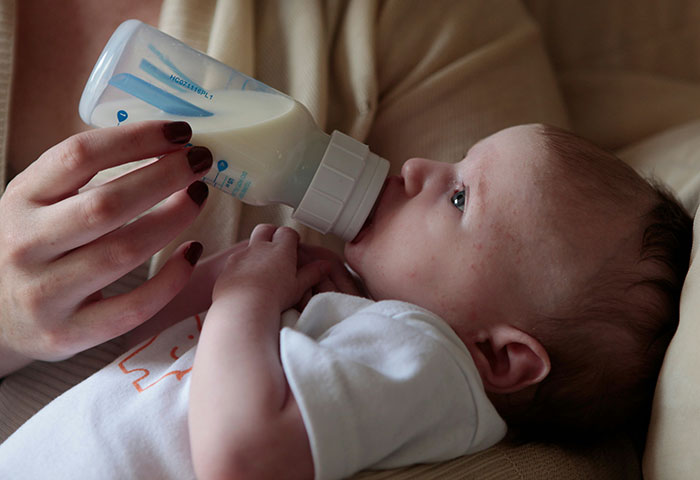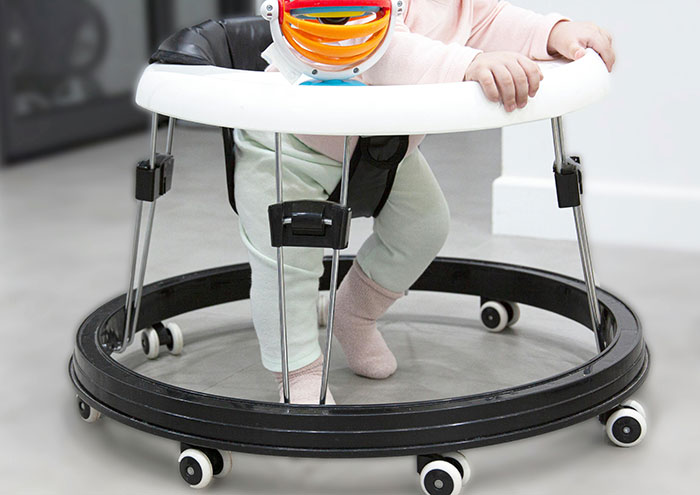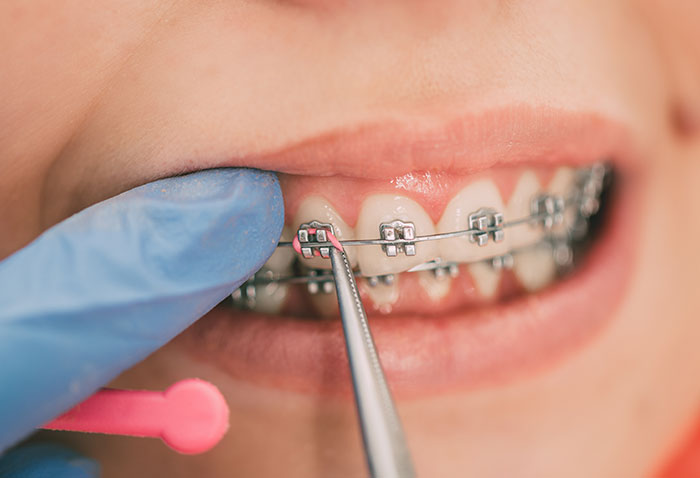In the Wild West of modern parenting, some Western parental beliefs are as misguiding as a GPS in a ghost town. Are endless extracurricular activities really forging well-rounded super kids? Should you really leave your newborn crying to “toughen them up”? Is circumcision necessary?
While science backs up many parental beliefs, others do not, in fact, promote the health benefits one might believe they do. As it turns out, sometimes, a bit of free-range parenting—letting kids be kids—might just be the healthiest choice, even if it means a few more scraped knees and a bit less résumé padding.
Dr Christina Scott, an associate professor and former Fulbright Scholar at Whittier College in California, whose research focuses primarily on sex and relationships, has offered her expertise to comment on those beliefs.
#1 Circumcision
Circumcision, a procedure that involves removing the foreskin from the human penis, gained popularity in the US and English-speaking countries during the late 19th and early 20th centuries.
The procedure was initially promoted to discourage masturbation and reduce sexual urges based on moral and religious grounds, a study shows.
Later, modern medical understanding challenged newer claims that circumcision promoted hygiene and prevented disease.
For instance, the British Medical Association indicated in 2006 that circumcision's health benefits were limited and controversial.
Dr Scott told Bored Panda: “Most parents now cite their primary reasoning for circumcising their male infants as ‘wanting him to look like his father.’
“Social comparisons have long been associated with penis size and appearance, and while most of the world does not practice circumcision, most American families have continued the practice for aesthetic reasons and to ‘fit in’ with other males in society.”

Image credits: nawin/stock.adobe.com
#2 Formula Over Breastfeeding Or Breastfeeding Over Formula
Breastfeeding is generally recommended over formula feeding due to the numerous health benefits for both the baby and the mother.
Mayo Clinic Press, MedlinePlus, and the Cleveland Clinic support the fact that breast milk provides ideal nutrition tailored to an infant's needs, supports immune system development, and reduces the risk of various infections and conditions like asthma, obesity, and diabetes later in life.
For mothers, breastfeeding can promote faster recovery post-delivery, reduce the risk of certain cancers, and help in bonding with the baby.
While formula feeding is a viable and nutritious alternative, especially when breastfeeding is not possible, breastfeeding is often considered superior due to these comprehensive health benefits, as per the World Health Organization.
While breastfeeding does provide significant immunity benefits over formula feeding, it is critical to consider that some women simply cannot breastfeed, Dr Scott told Bored Panda in an email.
“Milk either does not come in or there are other medical considerations [that] make it impossible,” the professor said.
She added: “Women who breastfeed in public are often shamed for not ‘covering up.’ However, women who cannot breastfeed (or choose not to) often face even harsher criticism, especially from other mothers.
“Caring for an infant is exhausting, and how a mom chooses to feed her baby is no one's business but her own.”

Image credits: Lucy Wolski/Unsplash
#3 Baby Walkers
Dr. Annalisa Abjelina, a pediatrician, had some harsh things to say about the device used by infants who cannot yet walk on their own to move from one place to another.
“Using a baby walker will not help babies learn to stand or walk,” she wrote on Children's Primary Care.
The pediatrician added: “In fact, there are strong associations between walker use and developmental delays in balance skills that are needed for walking. “Walkers may also interfere with muscle and joint development.”
Baby walkers were initially adopted for the convenience they offered parents, allowing them to keep their babies occupied while attending to other tasks.
Research now suggests that baby walkers might cause more harm than good.
Statistics show that over 40% of children who use a baby walker end up getting hurt (an estimated 4,000 injuries occur per year in the UK), Walkerville Chiropractic notes.

Image credits: 근형 김/Pexels
#4 Perfect School Attendance
Perfect attendance awards in schools have historical roots in promoting punctuality and discipline, traits valued during the industrial era when absenteeism could disrupt production.
According to educational historians, such awards were part of efforts to instill habits that would prepare students for future roles in the workforce.
Dr Scott told Bored Panda: “Especially with the interruption in learning due to COVID-19, schools are eager to motivate students to have perfect attendance.
“Unfortunately, many students (and parents) start to equate ‘perfect attendance’ with ‘perfect performance.’”
According to the social psychology expert, some students, especially in high school and university, may expect that simply showing up to all of their classes should earn them higher grades, regardless of the quantity or quality of the assignments they have submitted.
She further explained: “Encouraging students to attend class with an award can create an ‘extrinsic motivation,’ where we expect a reward instead of taking pride (internally) for our accomplishments.
“Without question, social recognition is valuable, but teaching children to take responsibility for their academic success and to have pride in themselves is priceless.”

Image credits: CDC/Unsplash
#5 "Sleep Training"
Sleep training methods commonly practiced in Western parenting, such as "crying it out," have been debated for their effectiveness and impact on infants.
Research suggests that while these methods may lead to quicker sleep onset, they do not necessarily improve long-term sleep patterns or emotional development.
"Western countries are typically more individualistic in nature, meaning that we put the needs of the individual above the needs of the group as compared to collectivistic nations, which focus on the welfare of the group as the priority," Dr Scott told Bored Panda.
She continued: “The Western practice of letting a baby ‘cry it out’ definitely matches with our sense of individualism and the need for babies to self-soothe.
“When asked ‘How would you describe yourself?’, most children from individualistic nations will pick personal adjectives such as ‘smart, funny, happy,’ etc., while children from collectivistic countries will choose words to describe their relationship to others, [such as] ‘sister, daughter, friend,’ etc.
“American babies typically learn to ‘self-soothe’ and ‘sleep through the night’ around six months of age, but the lessons on identity and community will impact them for a lifetime.”

Image credits: Kin Li/Unsplash
#6 Pureed Baby Food
According to the Academy of Nutrition and Dietetics, solid foods may be introduced to a child in any order.
However, puréed meats, poultry, beans, and iron-fortified cereals are recommended as first foods, especially if a baby has been primarily breastfed, since they provide key nutrients.
The Academy states that softer textures are very important when first introducing foods, with infants usually starting with pureed or mashed foods around six months.
Certain research suggests pureed baby food was actually adopted due to convenience, both for consumers and manufacturers, and it was only later claimed to be better for digestion, according to Food Timeline.
Companies like Gerber launched extensive advertising campaigns in the 1930s to persuade parents and doctors of its benefits, emphasizing safety and ease of use over homemade options, Solid Starts and Science Minded reported.

Image credits: Karolina Kaboompics/Pexels
#7 Babies In Separate Rooms
In many non-Western cultures, co-sleeping with infants is the norm, often seen as crucial for nurturing and bonding.
On the other hand, the practice of having babies sleep in separate rooms has become common in the West.
With important social class disparities, co-sleeping came to be associated with poverty and racial minorities in Westernized society, Hey, Sleepy Baby reported.
In the early 20th century, Western parenting trends emphasized raising children to be tough and independent, which led to practices that encouraged emotional restraint.
This was epitomized by the book The German Mother and Her First Child, which gained popularity during the Nazi regime, promoting strict and detached parenting methods, Basis Online noted.

Image credits: Courtney Kammers/Unsplash
#8 Screen Time
“There are plenty of concerns about kids choosing ‘screen time’ over social interactions with peers, sports, and academics,” Dr Scott told Bored Panda.
The mental health expert continued: “Research is piling up that says Gen Z (and likely Gen Alpha) lacks the social skills and self-confidence to interact with their peers in comparison to previous generations.”
Nevertheless, some research shows that certain concerns over screen time initially stemmed from anxieties about media influencing societal values, often driven by conservative viewpoints wary of moral impacts.
As highlighted by scientists, the evidence did not support implementing less than two hours of screen time a day, as recommended by the American Academy of Pediatrics.

Image credits: Przemek Klos/stock.adobe.com
#9 Braces
Braces have a long history, initially associated with status and wealth.
Ancient civilizations, including the Egyptians, used primitive orthodontic devices, often made from gold, to straighten teeth, Acceledontics explains. This practice indicated both a concern for appearance and social status.
In the 18th century, modern braces were developed by Pierre Fauchard and later refined by Edward Angle, primarily targeting the wealthy who could afford such treatments.
Over time, the focus of braces shifted from merely aesthetic improvements to emphasizing dental health and functional alignment, leading to their widespread use today, as explained by Loudoun Orthodontics.

Image credits: milanmarkovic78/stock.adobe.com







